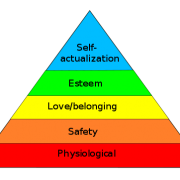All Posts by Gerard DiLeo, MD
Self-actualization in Medicine Part 2: Identifying Potential Complications

Doctors, especially long-established doctors, are tempted to treat their junior partners like children. It’s a variation on the “what do you want to be when you grow up?” and senior physicians are self-appointed gurus for how you should practice medicine. It’s not dictatorial or mean-spirited, however. You must remember an established practice has a good reputation for good reasons. Nevertheless, senior physicians expect their subordinates to be obedient and productive and not upset the course of the practice.
When intolerable limitations aren’t known before committing to a practice, they can brew like an ugly abscess, inflamed and painful. It’s no fun being the foreign body that initiates a practice’s innate immune system against you. This is a psychological burden that is unexpected while you’re trying balance risks vs benefits, follow a therapeutic flow sheet, or even concoct an empiric regimen. Can this burden be avoided? Just what are the warning signals?
Read moreSelf-actualization in Medicine Part 1: Your Hierarchy of Needs

When you are a new doctor jumping on board an established practice, it is expected that you subscribe to a way of doing things. Maybe these ways are right or maybe they’re wrong. Can you abide them or can the practice abide your not abiding them? You’ve always dreamed of how you would treat, educate, and relate to patients, and a well-oiled machine (i.e., an established practice) invites no torpedoes. Sometimes you must draw the line right away if you think there are dangers to patients or unethical practices. When your moral compass points south, it takes no time before you walk out the door. Other times you assimilate without difficulty; at some point, however, you will want to be your own person, your own doctor. Will you be a torpedo or an additional gear in the well-oiled machine?
Read moreRed Doctors and Blue Doctors. What about the Color Purple?

Politics is a very strange thing. It changes your friends and your enemies faster than the turnover in a schoolyard playground. It is a flawed system in which the disgruntled are tempted to think that the only people politicians represent are themselves. Like most responsible people, politicians are neither as bad as their detractors say nor as good as they themselves feel they are. A moral compass is usually there, but it is fragile because its needle is easily magnetized toward the politician him or herself.
Being a physician requires a crystal-clear moral compass because it’s too hard and too important of a job to do for just money. The labor, whether it’s cost efficient or not, is worth the satisfaction of doing one’s best while helping someone out the most. For doctors, their moral compass points to true North; for politicians, it sometimes points the way the wind is blowing.
Read moreLevity in Medicine

Is Medicine Fun? Does That Make It Funny?
Roller coasters are fun. Playing sports is fun. Neither is really funny. Like a roller coaster, the practice of medicine can be thrilling and unpredictable, rough or smooth. Like playing sports, to do it well, you have to know what you’re doing—be good at it.
Read moreTips for Acing Your Residency Interview

You need to convince them that you appreciate these things—common to all programs or particular to this one specifically—and then you need to convince them that you can give more than you get—that they will benefit from selecting you.
Read moreTrick Question: What’s the Answer to Drug Abuse?

From thousands of years ago to now, we harvested the opium poppy and eventually the morphine molecule to give the LC some competition. The LC tones down the pain signals initiated by injury, but narcotics, when they fill the opioid receptor site’s on neurons, block the pain signals from registering at the brain level, and the LC’s response doesn’t even happen.
Read moreChanging Times and Changing Minds – A Post for Future Physicians

In my dad’s time, I know he did hysterectomies, appendectomies, vein stripping, colon surgery, proctology, and many other things that just having his diploma and a knife qualified him for. True, it was a pretty good diploma as diplomas go, but today we know that you can’t know everything about everything.
Read moreMedical Research as a Career

Of all the ways one can practice medicine, one of the most fulfilling is in research. Research medicine involves searching and re-searching for, as well as discovering, proving, and implementing, approaches and applications of the medical arts that will move […]
Read morePhysician Practice Models – The Hospitalist

Finishing your training is “transitioning” to a life vastly different from the one you’re leaving. While the specialty of Hospital Medicine is one of the many choices available to you, the life of a hospitalist, like Hotel California, can be Heaven or it can be Hell.
Read moreA Medical Doctor’s First Day

The ink on your graduation diploma isn’t even dry yet. It is 6:59 AM on July 1, a minute before 7 AM on the day all shiny, new doctors begin working as real doctors for the first time.
Read more